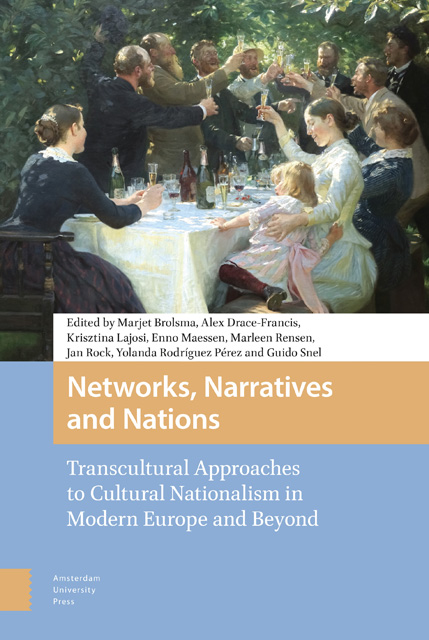 Networks, Narratives and Nations
Networks, Narratives and Nations Book contents
3 - Nationalism and the Rhine: A Matter of Perspective?
Published online by Cambridge University Press: 16 November 2022
Summary
Abstract
In his recent chapter on cultural mobilization on the Rhine, Joep Leerssen contrasts French with German national discourse over the nineteenth century. Here I take a different approach. Focusing mainly on Germany, I highlight political discontinuity against Leerssen's emphasis on cultural continuity, and the latent functions of nationalist ideology instead of the manifest meanings of key texts. The key discontinuity is marked by the “existential crisis” of 1811–15. The latent function is how nationalist ideologies enable collective action in pursuit of national political goals. These ideologies were distanced from individual German states, whereas they were identified with the unitary French state. My emphasis is on difference in political context, not contrasts between cultural and civic meanings in key texts.
Keywords: nation; state; crisis; ethnic nationalism; civic nationalism; language
In his recent study of French and German cultural mobilization on the Rhine, Joep Leerssen makes a powerful case for understanding nineteenth-century French and German nationalisms as conflicting discourses. He draws on many texts to make his case. Notions of crisis and continuity enable connections to politics. Many texts were central during crises: the “Marseillaise” in 1792; Ernst Moritz Arndt's “Was ist des Deutschen Vaterland?” in 1813–14; Nikolaus Becker’s “Rheinlied” in 1840. The Arndt and Becker songs resurface in 1870–71, and the “Marseillaise” in many periods. They echo through intervening periods. To demonstrate their significance, Leerssen not only points to public performances and high print circulation, but also invokes Michael Billig's idea of banal nationalism: emotions kept “lukewarm” through everyday repetitions become “hot” in a crisis. Leerssen juxtaposes “moments of political crisis […] [as] merely pulsations,” against the “lingering cultural effect of each discursive stance”:
Germans in 1840 recall the rhetoric of 1813; the rhetoric of 1870 recycles that of 1840 and of 1813; 1914, for all parties concerned, is a rerun of 1870. This textual echo-chamber gives continuity and adds intensity to the political conflicts which it helped shape and colour over the century.
- Type
- Chapter
- Information
- Networks, Narratives and NationsTranscultural Approaches to Cultural Nationalism in Modern Europe and Beyond, pp. 51 - 62Publisher: Amsterdam University PressPrint publication year: 2022


